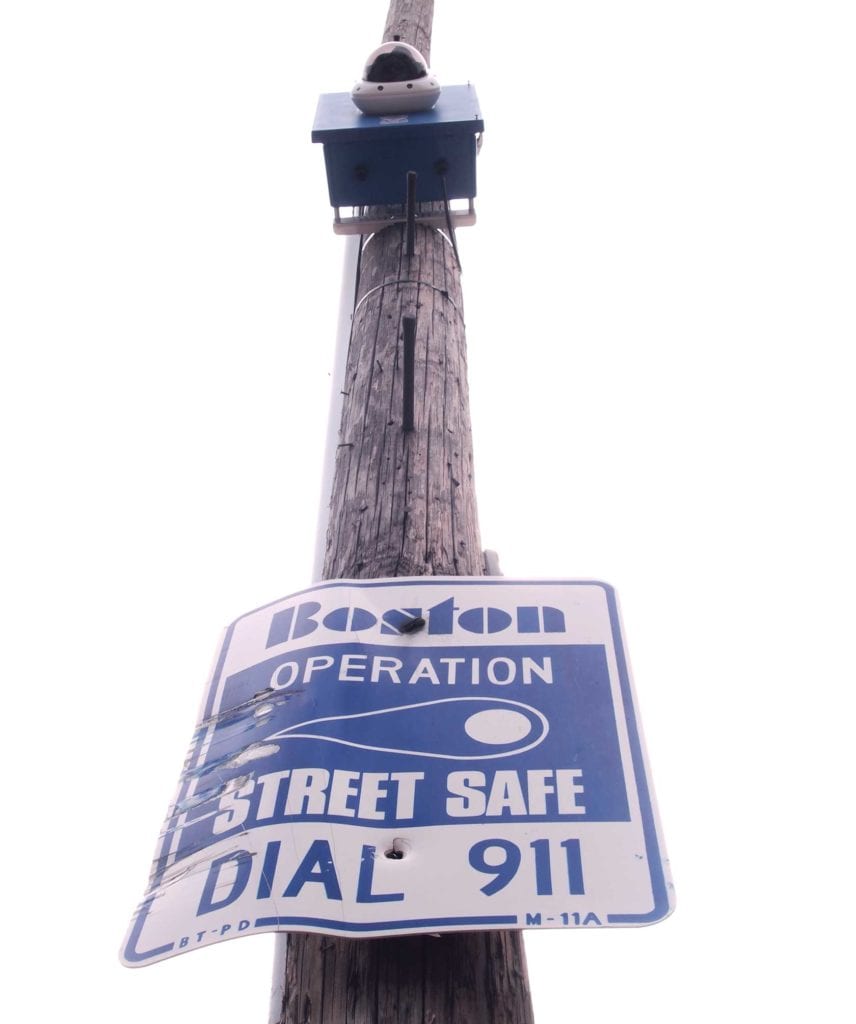
The city of Boston has filed a request for proposals to expand video surveillance use for police departments in nine area cities, on behalf of a nine-city regional security coalition. While facial recognition was recently limited in the state’s police reform bill, this extension would allow law enforcement in Boston, Chelsea, Revere, Somerville, Winthrop, Everett, Cambridge, Quincy and Brookline to have access to the same software and video footage.
Requests for proposals (RFPs) are how the city solicits bidders to provide services for city projects.
Activists opposing police surveillance, including the ACLU of Massachusetts and the Muslim Justice League are calling on acting Mayor Kim Janey to withdraw the request for proposals — a request that was likely in the works before she took office.
According to a statement from the mayor’s press office, “The City of Boston’s Office of Emergency Management serves as the fiduciary and administrative support for this regional entity, including processing regional requests for proposals,” indicating that the city of Boston filed the RFP in its capacity as representative of the Metro Boston Homeland Security Region, which includes those nine cities.
The City Council is in the midst of securing major oversight of all new surveillance that law enforcement wants to use, but currently has no say in the surveillance expansion RFP the city’s Office of Emergency Management filed in April.
For the ACLU, this isn’t about the mayor, but it is about the council’s ordinance that would give them the power to weigh in on the decision.
“Then-Councilor Janey was a lead sponsor for the surveillance oversight ordinance … that would, when enacted, subject these types of plans to public scrutiny and City Council oversight and approval,” said Kade Crockford, director of the Technology for Liberty program.
Councilor Michelle Wu, a lead sponsor of the ordinance, said in a statement to the Banner that the ordinance is currently awaiting a vote.
“This RFP is the very type of situation that would be covered by this community-backed legislation, and it should not proceed until we finalize policies for oversight, so that we do not perpetuate a piecemeal approach that continues to harm our communities,” Wu said.
Crockford estimates that there are about 3,400 police officers in the nine cities of the region, and through this RFP, they’d all have access to a network of over 1,000 surveillance cameras.
“That’s extremely troubling,” Crockford said. “Any system can be hacked, and so the idea that the city would network all of these cameras into one system makes it much more of an attractive target for hackers.”
The expansion could also allow for abuse and misuse, if not properly regulated, she warned. In light of the scandal with former Boston police officer Patrick Rose, who remained an officer for over 20 years after the Boston Police Department investigated him for child abuse, the discretion of high-ranking officers has come into serious question.
“Abuse and misuse of a system like this is inevitable,” Crockford said.
Surveillance impacts
Surveillance disproportionately impacts Black people, other people of color and Muslim people, activists say. Fatema Ahmad, executive director of the Muslim Justice League, told the Banner that the Boston Police Department is already prone to rigorous surveillance of Muslim people.
“Islamophobia drives wide acceptance of heavy surveillance of Muslims under the guise of national security,” Ahmad said. “We’ve already seen this with the Geofeedia incident in Boston, where the Boston Police Department and [the Boston Regional Intelligence Center] were caught surveilling Muslim social media for very common Arabic terms.”
In 2018, the Massachusetts ACLU released a report detailing the BPD and BRIC’s abuse of social media surveillance when looking for extremists and proponents of violence. They were screening terms like “#blacklivesmatter,” “ISIS,” and Arabic terms commonly used by Muslims.
“We need an inventory of all of the surveillance technology (both software and hardware) in use by the Boston Police Department, something the City Council I believe asked for in a June 2018 hearing on BPD surveillance, but BPD has not produced,” Ahmad said.
She is calling for the city to withdraw the RFP because uniform laws on surveillance do not exist in Massachusetts. Though Boston has banned facial recognition technology, other cities have not. Mutual agreements on what software to use and who regulates it have not been discussed, as these are very early stages.






